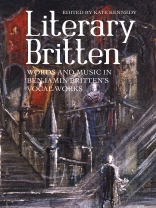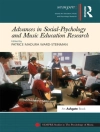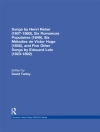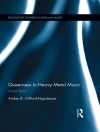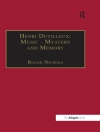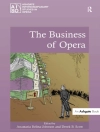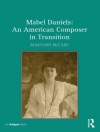Britten is the most literary British composer of the twentieth century. His relationship to the many and varied texts that he set was deeply committed and sensitive. As a result, both his responses to poetry and his collaborationswith his librettists tell us a great deal about his music, and often, about the man himself.
Britten is the most literary British composer of the twentieth century. His relationship to the many and varied texts that he set was deeply committed and sensitive. As a result, both his responses to poetry and his collaborationswith his librettists tell us a great deal about his music, and often, about the man himself. This book takes a unique approach to Britten, drawing together well-known Britten experts alongside English, music, modern language andhistory scholars who bring their own perspective to bear on Britten’s work. Chapters examine all aspects of Britten’s text setting, from his engagement with a wide variety of poetry to his relationship with his librettists. By approaching Britten’s operas and songs through their literature, this book offers fresh insights into his vocal works.
KATE KENNEDY is the Weinrebe Research Fellow in Life-writing at Wolfson College, Oxford, where she is an associate of both Music and English Faculties. She is a frequent broadcaster for the BBC and specialises in interdisciplinary biography and has published widely on twentieth century music and literature.
Contributors:JOANNA BULLIVANT, PHILIP ROSS BULLOCK, NICHOLAS CLARK, MERVYN COOKE, DAVID FULLER, JOHN FULLER, PETER HAPPÉ, J. P. E. HARPER-SCOTT, JOHN HOPKINS, KATE KENNEDY, ADRIAN POOLE, HANNA ROCHLITZ, PHILIP RUPPRECHT, REBEKAH SCOTT, VICKISTROEHER, JUSTIN VICKERS, LUCY WALKER, BRIAN YOUNG
قائمة المحتويات
Introduction – Kate Kennedy
Britten and His Librettists: The Composer as
Auteur – Mervyn Cooke
Britten, Auden and the 1930s – John Fuller
James, Britten, Piper and the Literary Supernatural: The Changing ‘vision of evil’ in
The Turn of the Screw and
Owen Wingrave – Nick Clark
‘Thought’s Wildernesses’: The Development of Britten’s
Nocturne from Library to Score – Kate Kennedy
‘Reading at Intervals’: Britten’s Romantic Poetry – Brian Young
Britten’s Drops: The Lyric into Song – Rebekah Scott
‘Without any tune’: The Role of the Discursive Shift in Britten’s Interpretation of Poetry – Vicki P. Stroeher
Britten and Modern Tragedy – Adrian Poole
Settings from Boyhood – Lucy Walker
‘Practical Jokes’: Britten and Auden’s
Our Hunting Fathers Revisited – Joanna Bullivant
Choice and Inevitability: The Moral Economy of
Peter Grimes – Philip Ross Bullock
Sin, Death, and Love: Britten’s
Holy Sonnets of John Donne – David Fuller
Britten’s Donne Meditation – Justin Vickers
Scenes from Britten’s
Spring Symphony – Philip Rupprecht
‘I
have read
Billy Budd’: The Forster-Britten reading(s) of Melville – Hanna Rochlitz
Miles Must Die: Ideological Uses of ‘innocence’ in Britten’s
The Turn of the Screw –
Benjamin Britten and Medieval Drama at Chester: From
Abraham and Isaac to ‘
The Nativity’ – Peter Happe
Ambiguous Venice – John Hopkins
Bibliography
عن المؤلف
PHILIP ROSS BULLOCK is Professor of Russian and Music at the University of Oxford, and Fellow and Tutor in Russian at Wadham College, Oxford. Previously for Boydell, he has published a translation of the correspondencence between Rosa Newmarch and Jean Sibelius, and in 2016, his biography of Tchaikovsky was published in the Critical Lives series by Reaktion.
